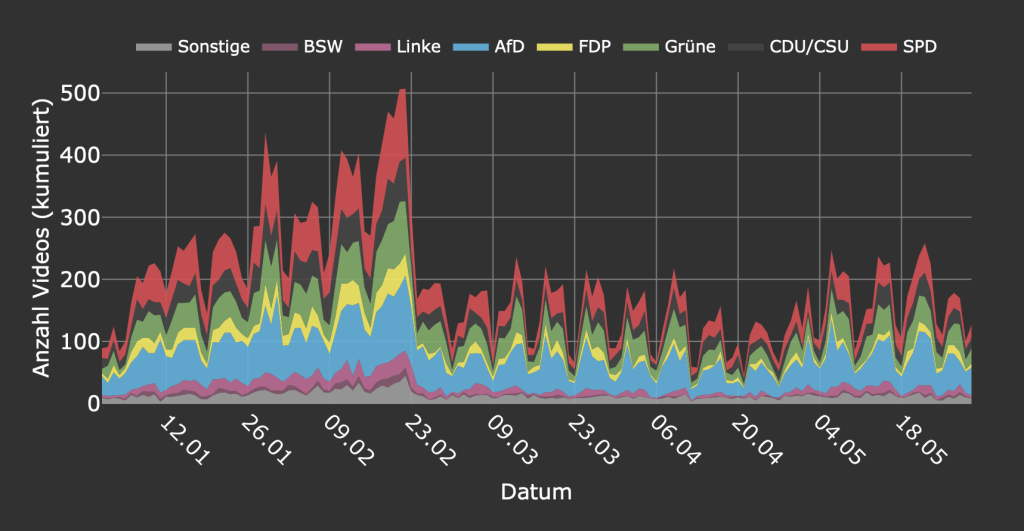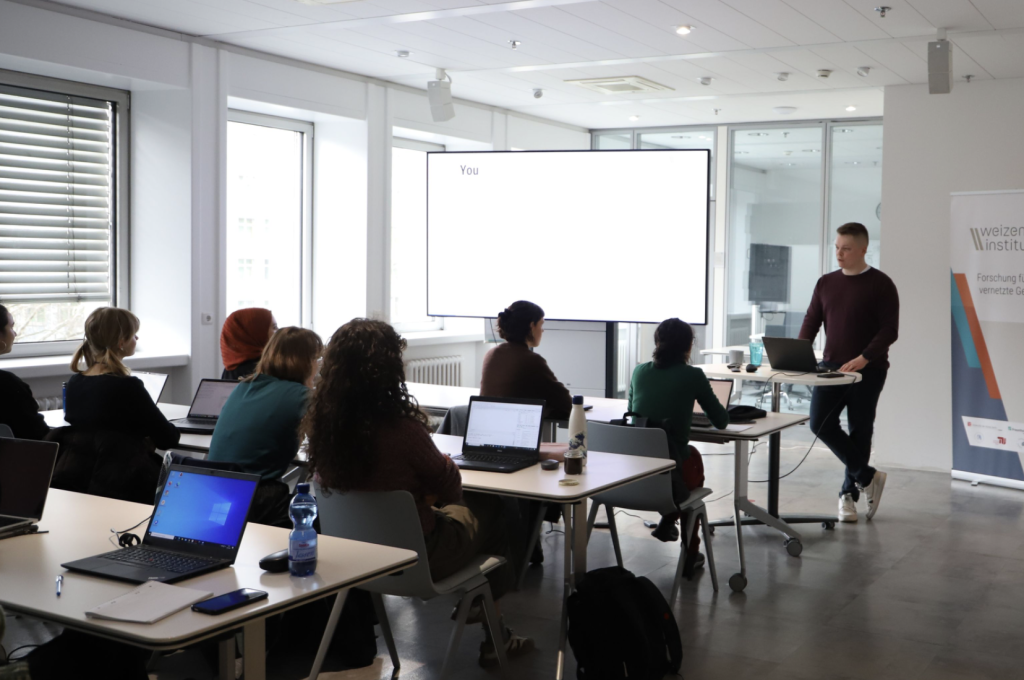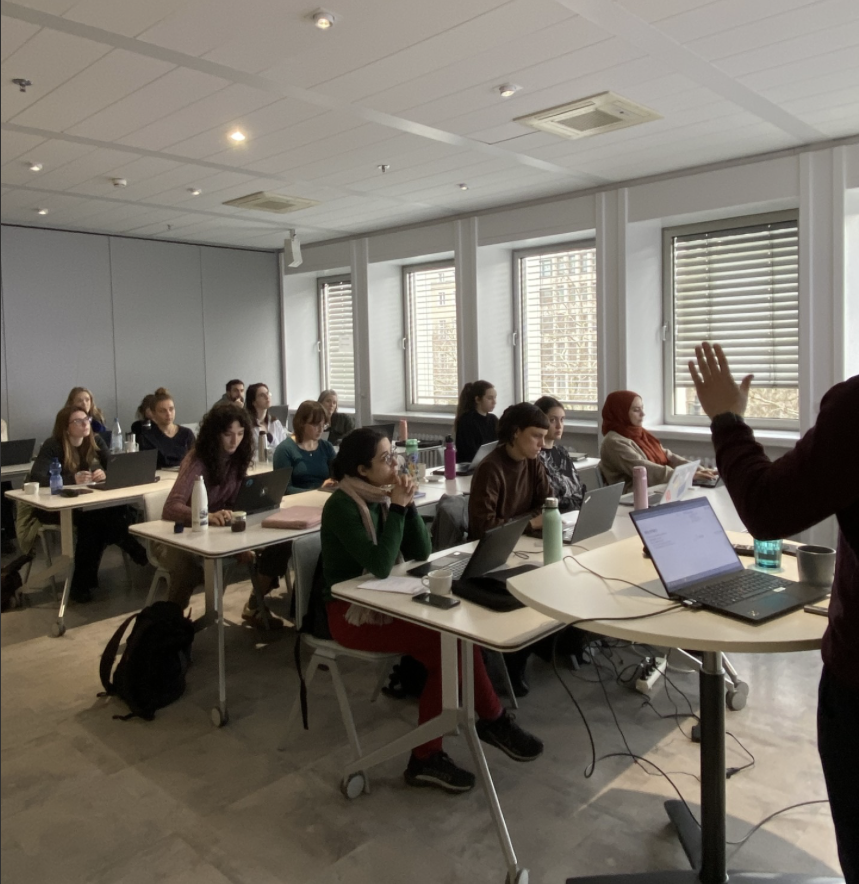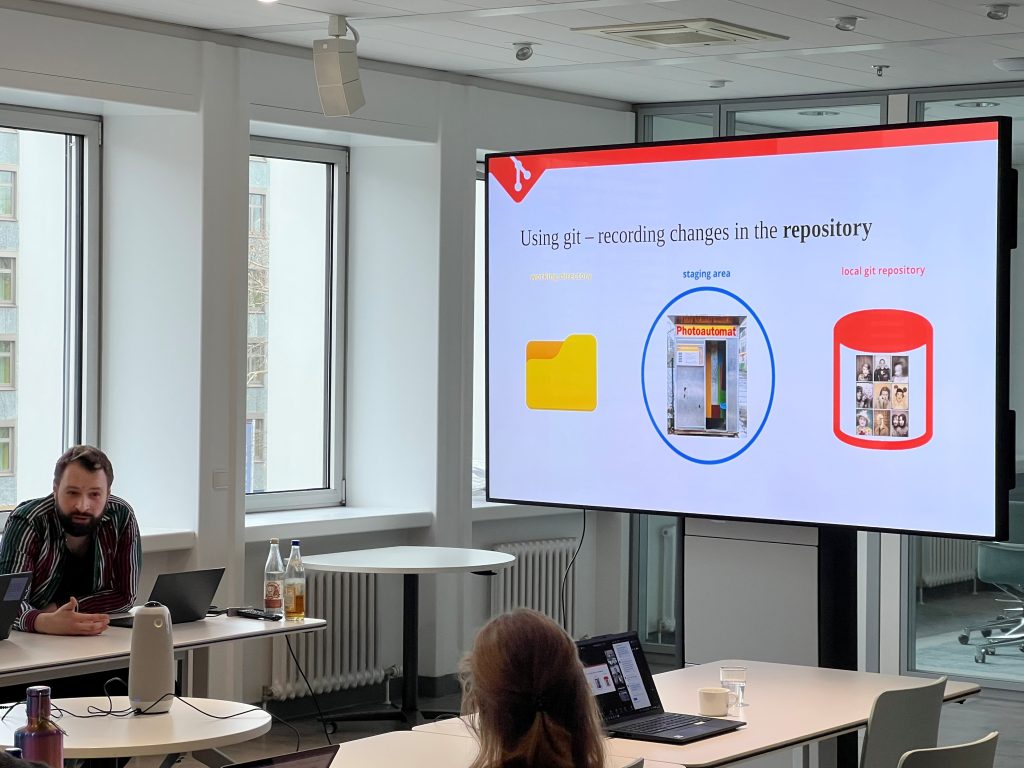Whether it’s unwinding after a long day or killing time in line for coffee, social media has become a major source of entertainment and connection. The immediate satisfaction it often brings can boost the mood, but it’s not just entertainment we’re absorbing. Amidst the lighthearted content, is exposure to a wide range of information, much of which we may not fully process. Research suggests a link between high social media usage and lower self-control, which may also perpetuate processes of dissociation that many refer to as mindless scrolling. As we passively absorb media from smiling koalas to political protesting, how are we actually understanding the more consequential information and even shaping our opinions?
Lion Wedel and Jakob Ohme consider these influences in collaboration with Bayerischer Rundfunk, Stuttgarter Zeitung, and the University of Zürich in their project, Dein feed, deine Wahl, (Your Feed, Your Choice/Election). In this ongoing initiative, TikTok users are encouraged to donate their data in an anonymous manner and in turn receive a direct analysis of the political content and parties appearing in their feed.

Jakob and Lion shared their perspectives in an interview, offering insight backed by their expertise in political communication and digital media research.
To begin, Lion and Jakob discuss the broader implications of media on shaping one’s ideological framework. Specifically, which types of content shape opinions the most, and how do they attract attention?
To this, Lion responds,
“The more time you spend preparing a video, the less popular it gets. Like quick and dirty typically works better.”
This was in reference to a podcast titled, Was tun? Die Strategien hinter dem Comeback der Linkspartei (1/3): Wie Heidi Reichinnek die AfD auf TikTok überholte, in which Felix Schulz, social media manager in Heidi Reichinnek’s office, explores the strategic use of TikTok to engage young voters. From this, Lion highlights the influential processes through which opinions are likely to form online. He quotes the manager’s technique, asserting that his videos did so well because they managed to make a compelling statement in the first one to three seconds of the clip. Even in regard to political news, Lion describes, “It does not matter if it’s true or false, or if it’s catchy or misleading, you just have to get that attention grabbing moment.” He concludes by suggesting this content that keeps its audience engaged to the video’s end, is more likely to shape opinions.
But what are the implications to the broader democratic landscape in Germany if people form political opinions based on whatever content is most stimulating in their feed, regardless of its credibility? Can the use of traditional media repertoires play a role in fact-checking political discourse?
Statistics of the 2025 Weizenbaum panel report exploring last year’s political participation in Germany may suggest otherwise. Since 2021, there has been a decline in the use of traditional media sources such as newspapers and radio for news consumption, while internet usage has remained consistently stable. Moreover, over 60% of voters up to the age of 30 receive their political information from social networking (Schöffel et al., 2025), suggesting platforms such as TikTok are inevitably shaping how many engage in political debate.
Given recent civic tensions in Germany, including shifts in numerous elections and widespread protests, there appears to be a similar polarization in the spread of social media information. As many are more likely to express their opinions than change them, and online discussions often dominate in one direction of opinion (Xiong & Liu, 2014), raising awareness of these influences not only to our personal perspective but also the broader political environment becomes critical.
According to Jakob, the nature in which algorithmic selection processes function, “affect political landscapes to an extent that we probably ten years ago did not think was possible.” He outlines his interpretation of how algorithmic platforms contribute to political shifts, attributing the cause to the often passive behavior of individuals online, where their feeds reflect the content they prefer. As seen in previous research, social networking individuals may feel a reduced sense of self awareness and volition (Baughan et al., 2022), often consuming the content that is most interesting and aligns with their worldview. Jakob concurs, stating, “We can all function like this from time to time.”
He continues,
“There is content that works better with the algorithm and especially on TikTok. We can see that as soon as something works, it will capture a lot of attention, but as soon as something doesn’t work, it will completely drown. There are certain kinds of political content that work better and that is the emotional appeal, opinionated, negative and extreme information.”
Jakob asserts that certain political parties, especially those on the right-wing, are more adept at taking advantage of this dynamic, as their content tends to perform better online. Algorithms may as a result appear to favor them, not because of any inherent political bias, but because these parties successfully leverage a system that operates based on audience engagement patterns to maximize their impact.
Consequently, the Dein Feed, deine Wahl initiative establishes an objective foundation for identifying usage patterns within TikTok’s algorithms that ultimately contribute to the broader political climate. Jakob emphasizes the significance of these usage trajectories, aiming to explore their association with voting decisions and provide a descriptive overview of the extent to which individuals encounter political party-related content. In addition to this, he expresses the ambition to reverse-engineer algorithms to mitigate their effects. By examining how usage patterns influence algorithmic decisions and lead individuals to encounter more of the same content over time, researchers are better equipped to address these dynamics. This approach is especially essential given that analyzing video content and user interaction data has been largely unexplored due to its methodological complexity.
Overall, this project paves the way for regulating social media platforms in the long term, with the hope that it remains accessible for prospective political debates and elections. However, to move forward, Lion identifies the collection of data donations as one of the first priorities. The quality of the analysis significantly depends on the number of public contributions volunteered to their data donation lab.
Therefore, if you’d like to support the project or are curious of the political makeup in your own feed, please donate your usage here!


